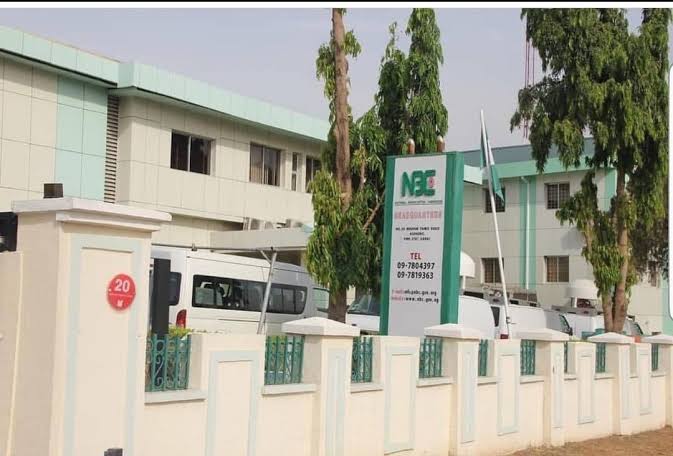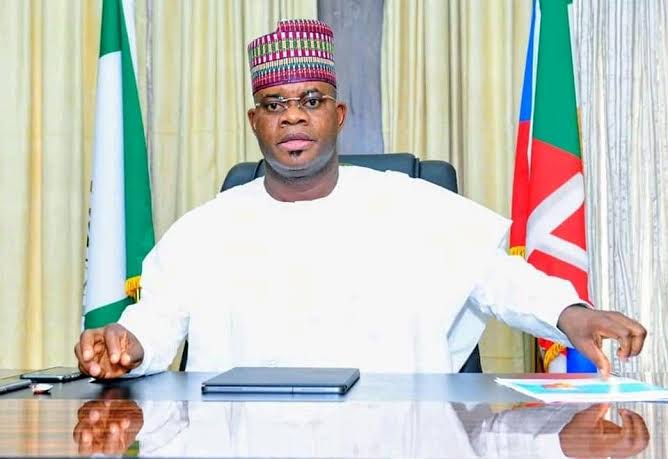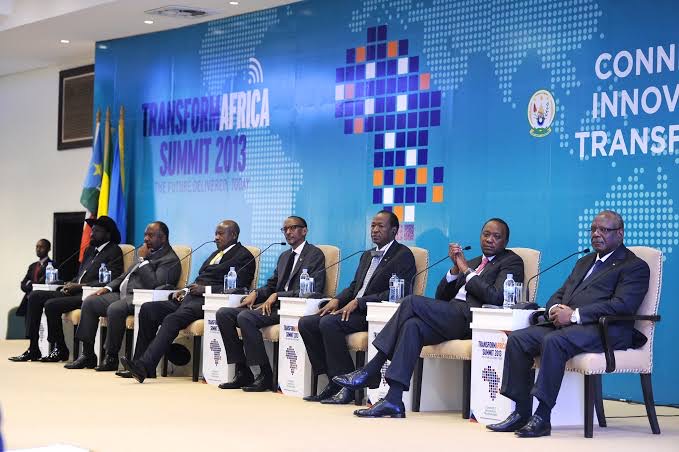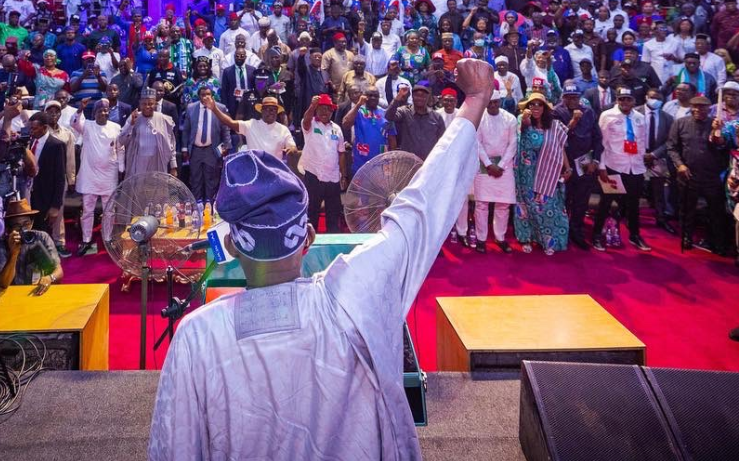There was a significant development last week at the domain of the broadcast regulator, the National Broadcasting Commission (NBC). In a judgment that has been hailed as a landmark, if you have the stomach for cliches, a Federal High Court, forbade perpetually the regulator to ever place any fine on a broadcast operator.
This has created tension within the NBC and even among those with residual relationships with the regulator. Two calls bear clear testimony to the happenings at the Commission. The first was to a former director at the NBC who wailed that the judgment has reduced the worth of the regulator and even the vision of those who worked there in the past.
But the second call was fire. Just an innocuous call to a current director at the Commission to ask for the way forward, the voice screamed: “Why are they troubling us, why are they not suing based on Section 6 of the Broadcast Act? They know what the problem is but seem to overlook it.” Really?
Let’s quickly look at the source of the outburst, Section 6 of the National Broadcasting Commission Act CAP N11, Laws of the Federal Republic of Nigeria, 2004. “Subject to the provisions of this Act, the Minister may give the Commission directives of general character relating generally to particular matters with regard to the exercise by the Commission of its functions under this Act and it shall be the duty of the Commission to comply with such directives,” the Act states clearly.
Advertisement
My source seems to infer that some of the happenings at the Commission are externally engineered with the regulator left to gather the broken pieces of a ruined regulatory reputation. It may serve our purpose at this time to revisit the judgment.
The Federal High Court judge in Abuja, James Omotosho, in giving an order of perpetual injunction restraining the NBC from imposing fines on broadcasters henceforth, and also setting aside the N500, 000 fines imposed on 45 broadcasters since March 1, 2019, held that the NBC, not being a court of law, had no power to impose sanctions as punishment on broadcast stations.
Omotosho also pointed out that the Nigeria Broadcasting Code which gives the Commission the power to impose sanction, is in conflict with Section 6 of the Constitution that vested judicial power in the court of law.
Advertisement
What a coincidence! More like double jeopardy for NBC. The voice within the Commission shouted Section 6 of the National Broadcasting Commission Act, while Omotosho is also relying on Section 6 of the Constitution to make his declaration.
Section 6 of the Constitution of the Federal Republic of Nigeria is about Judicial Powers of the federation, with the first two clauses as follows: 6 (1) The judicial powers of the Federation shall be vested in the courts to which this section relates, being courts established for the Federation. (2) The judicial powers of a State shall be vested in the courts to which this section relates, being courts established, subject as provided by this Constitution, for a State.
The judge berated the NBC for failing to comply with the law as it sat as complainant and, at the same time, the court and the judge on its own matter.
“The action of the respondent qualifies as excessiveness,” as it had ascribed to itself the judicial and executive powers.
Advertisement
Some Nigerians may ascribe this judgment as a fallout of recent happenings in the broadcast industry. No. This story dates back to 2019 and is a troubling reflection of the broadcast ecosystem which has hardly had any respite since 2015, when President Muhammadu Buhari came into office.
Specifically, in March 2019, the NBC imposed a fine of N500, 000 each on 45 broadcast stations for infractions committed during the general elections. The Commission explained that the stations allowed politicians to make abusive, inciting and provocative statements in their programs.
The Media Rights Agenda (MRA) saw the development as an action capable of constricting the broadcast space and through a motion, FHC/ABJ/CS/1386/2021, approached the Federal High Court to help tame the excessive actions and arbitrary fines imposed by the regulator. Barrister Noah Ajare, who filed the suit on behalf of MRA in November 2021, described the NBC action as a violation of the rules of natural justice. NBC was the sole respondent.
Over three years later, the judge agreed with the complainant that NBC, which is not the Nigerian police, had no power to conduct criminal investigation that would lead to criminal trial and imposition of sanctions.
Advertisement
“This will go against the doctrine of separation of powers,” he said.
The annoying refrain in the country today is “go to court.” This is a latter day development though bred by the evil in the polity. MRA has gone to court and has ignited some light at the dark end of the tunnel.
Advertisement
This effort is not lost on the Nigerian Guild of Editors, which, in a statement signed by its President, Mustapha Isah, and General Secretary, Dr Iyobosa Uwugiaren, hailed the courage of MRA for testing what it described as the draconian Act of the NBC.
“Justice Omotosho’s ruling on Wednesday vindicated our consistent position over the years that the NBC cannot be the accuser, the investigator and the judge on matters relating to alleged breach of the Broadcast Code.
Advertisement
“Our position has always been that an independent body or institution should be the one to examine any perceived infraction by the broadcast stations, which should be given the opportunity to defend themselves,” the Guild said in the statement.
The NBC has said it is going on appeal. This is the right way to go as such development gives the courts the responsibility to make pronouncements on the matter until a final conclusion is reached.
Advertisement
Unfortunately, I do not need the power of clairvoyance to say that the NBC may lack support or enjoy any little sympathy from any quarters. Either perpetually troubled by its failure in office or sheer inexplicable irritability, this government has subjected the media to sustained ordeal, leading to cries of media suppression and oppression from the Buhari government.
The NBC has been the most potent weapon in the attack line. While the fine was pegged at N500, 000 early 2019, the new Broadcasting Code which came into operation in a welter of controversies on July 4, 2019, upgraded such fines to N5m. This explains why the standard fine of late has remained N5m. This fine has come in torrents; either making them look ludicrous or just plain mischief or damaging harassment, that they have elicited remonstrations from the Nigerian public, including broadcast operators.
Fortunately, for the career civil servants at the NBC, the broadcasters can see beyond their tears that the problems of their industry are induced by powers beyond the Commission. And they want such shadowing authority addressed.
Quite a few things are being thrown up by this court judgment, the first one being that there is something wrong with Section 6 of the NBC Act that has to be addressed urgently in order to give life to the broadcast regulator and those who operate in the industry. While it is easy to point accusing fingers at the supervising Minister, there is the need for frankness in admitting that the Minister enjoys the protection of Section 6 until it is revisited through an amendment.
The judgment also puts the regulator in a very painful and helpless situation and that doesn’t help any regulator anywhere in the world. Each judgment reduces the capacity of the regulator to perform its responsibilities. Under this administration, there have been a number of judgments against the NBC and the regulator is progressively weakened.
Recall that in May 25, 2022, a Lagos High Court gave one Mr Femi Davies judgement against the NBC, in which case, Justice Ambrose Lewis-Allagoa, completely thrashed the 6th edition of the Nigeria Broadcasting Code, describing it as ultra vires, incompetent null and void, and therefore perpetually restrained the Commission from implementing it.
In a little twist of irony, on July 13, 2022, an Appeal Court sitting in Port Harcourt, Rivers State, directed the NBC to make a determination in the channels sub-licence case between Multichoice Nigeria Limited and Metro Digital based on the provisions of the Code. The NBC wrote to Multichoice on October 25, 2022, directing the organisation to obey relevant sections of the Code in sub-licensing some channels to Metro Digital, but has this resolved the problems?
The Omotosho ruling puts the NBC in a bind but the regulator should see some good from such a devastating punch. While regulatory fervency will be impaired for some time, it will be an act of courage for the NBC to carry out some self introspection and cure itself of what it has always been accused of: sitting as judge in its cases and being intolerant of, and impervious to even good ideas from the industry.
It makes common sense for institutions to strive to preserve their institutional culture instead of exposing it to the avarice and manipulations by politicians whose tenure moves faster than quicksand. There is something about the culture of the NBC that must be preserved.
Views expressed by contributors are strictly personal and not of TheCable.







